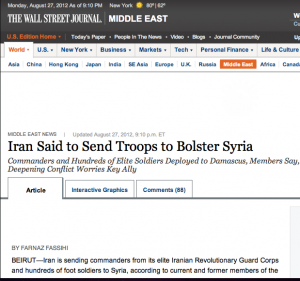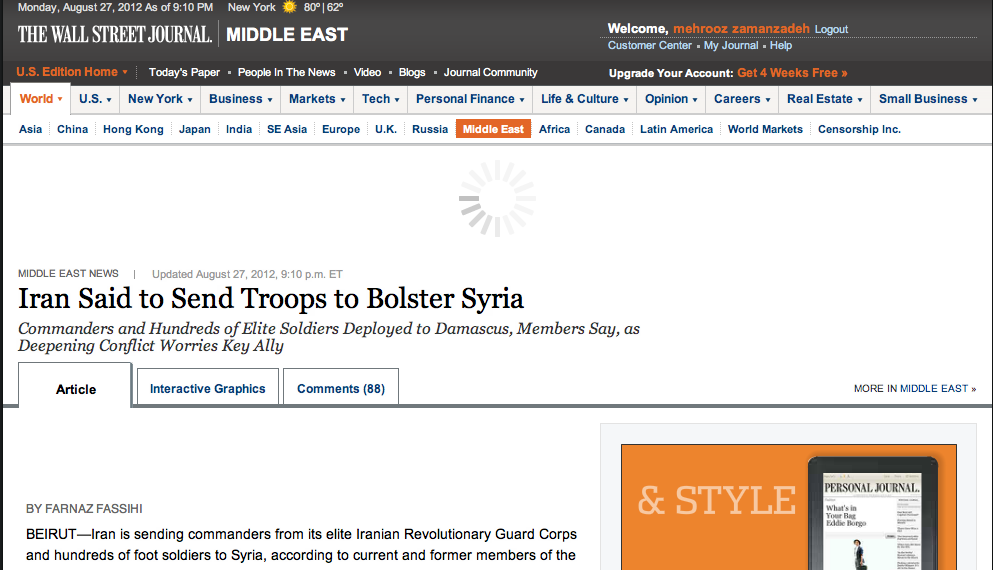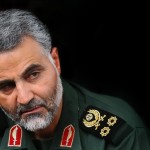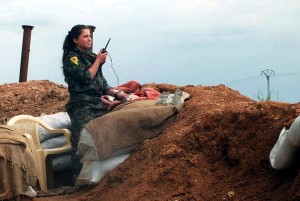 On Monday the Wall Street Journal published a breathless article about Iran sending troops to bolster Syria. Quite a bit of the piece is a re-write of a previous story based on anonymous sources and speculation about Iranian hostages in Syria, some of whom are reportedly retired members of Iranian Revolution Guard Corps (IRGC). But the part of the more recent story that created the sensational headline is really based on one quote that is attributed to an IRGC commander in the Qazvin Province. Reportedly, “General” Salar Abnoush, commander of the IRGC’s Saheb al-Amr unit, told volunteer trainees in a speech on Monday that “Today we are involved in fighting every aspect of a war, a military one in Syria and a cultural one as well.” According to WSJ reporter Farnaz Fassihi, “A commander of the Iranian Revolutionary Guard Corps, or IRGC, appeared to offer Iran’s first open acknowledgment of its military involvement in Syria.”
On Monday the Wall Street Journal published a breathless article about Iran sending troops to bolster Syria. Quite a bit of the piece is a re-write of a previous story based on anonymous sources and speculation about Iranian hostages in Syria, some of whom are reportedly retired members of Iranian Revolution Guard Corps (IRGC). But the part of the more recent story that created the sensational headline is really based on one quote that is attributed to an IRGC commander in the Qazvin Province. Reportedly, “General” Salar Abnoush, commander of the IRGC’s Saheb al-Amr unit, told volunteer trainees in a speech on Monday that “Today we are involved in fighting every aspect of a war, a military one in Syria and a cultural one as well.” According to WSJ reporter Farnaz Fassihi, “A commander of the Iranian Revolutionary Guard Corps, or IRGC, appeared to offer Iran’s first open acknowledgment of its military involvement in Syria.”
This news is of course spectacular enough to be picked up by almost everyone interested in the Syrian conflict. Haaretz already has a blog up wondering “Why Iran is suddenly admitting to sending troops to Syria?”
Sitting in Honolulu I have no way of knowing whether Iran is actually sending troops to Syria or not. But how a story based on a rather suspicious or at least not verified source makes headlines is worth examining because it reveals much about the hysteria of news reporting regarding Iran, as well as the flimsiness of the sources used in reporting about the country and its policies.
So where did Fassihi pick up the quote from the commander from one of Iran’s 31 provinces – tellingly the WSJ does not tell us that he is a provincial commander – who Fassihi has chosen to elevate to the rank of a general? (I have no idea if he is a general or not since Fassihi’s source only says that he is the commander of the Qazvin unit.) Did she pick it up from any of Iran’s major news agencies or newspapers? The answer is no. I happen to know because I also noticed a rather short entry on August 27th in the Baztab website, which is conservative but critical of Iran’s direction since the 2009 election. The piece is very short (less than 120 words) and titled: “The Strange Words of IRGC’s Qazvin Commander: Iran is Involved in Military Dimension of the Fighting in Syria.” Fassihi must have relied on this short entry because Baztab does not provide a link and I am unable to find the original source of the news, which is the Daneshjoo News Agency. This is something Fassihi seems to coyly acknowledge as well by stating, “The comments, reported by the Daneshjoo news agency, which is run by regime-aligned students, couldn’t be independently verified.”
So what is the context and who is this guy anyway? Is he even in a position to know Iran’s involvement in Syria?
The context is a speech he gave at Imam Khomeini International University, which is located in Qazvin. What Fassihi quotes is indeed one line of this very short report. In the rest of the report, Abnoush reportedly states that the student Basij is “arming students as much as possible in the ideological arena” and focuses on how the curriculum can be strengthened by hiring faculty that can neutralize the “doubts that have been created by the enemy.” The report ends by him saying that “Unfortunately students enter the university with love but because of the enemy’s cultural maneuvers they become discouraged in the University.”
As far as I am concerned, given the assault that is currently being waged against Iranian universities and faculties, particularly in the humanities and social sciences, for not being Islamic and committed enough, these statements are very troublesome and painful to read. But regarding Syria, should we just assume that this guy knows what he is talking about regarding Iran’s military involvement? Even more basically, can we assume that he was quoted correctly and not out of context when the source is inaccessible? Shouldn’t there be a bit more diligence involved in checking sources or can reporting basics be ignored if the subject is Iran? Perhaps we should just speculate, as Haaretz does, about whether the Islamic Republic’s leadership is using a provincial commander to signal that it’s upping “the ante as the first foreign country to go further than supporting one of the sides in Syria with arms and guidance, but also with its own soldier”.
Or, should we listen to the public words of Iran’s defense minister, Ahmad Vahidi, ironically quoted in the same WSJ article, that “Syria is managing this situation very well on its own but if the government can’t resolve the crisis on its own, then based on their request we will fulfill our mutual defense-security pact.” In other words, there are no Iranian troops in Syria yet.





